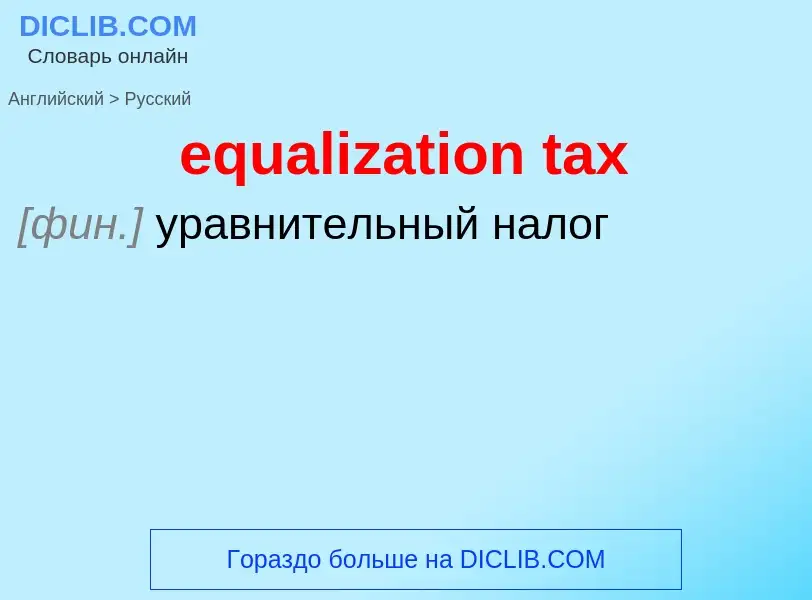ترجمة وتحليل الكلمات بواسطة الذكاء الاصطناعي
في هذه الصفحة يمكنك الحصول على تحليل مفصل لكلمة أو عبارة باستخدام أفضل تقنيات الذكاء الاصطناعي المتوفرة اليوم:
- كيف يتم استخدام الكلمة في اللغة
- تردد الكلمة
- ما إذا كانت الكلمة تستخدم في كثير من الأحيان في اللغة المنطوقة أو المكتوبة
- خيارات الترجمة إلى الروسية أو الإسبانية، على التوالي
- أمثلة على استخدام الكلمة (عدة عبارات مع الترجمة)
- أصل الكلمة
equalization tax - ترجمة إلى الروسية
общая лексика
параметрический фильтр
تعريف
ويكيبيديا
Tax equalization is a policy applied by some international companies under which employees who are hired in one country and later accept a (temporary) assignment in another country do not have their total after-tax ("take-home") compensation changed depending on the tax regimes of the country they move to. If the employee is assigned to a country with lower taxes, the company takes the savings. On the other hand, if they move to a country with higher taxation, the company pays the excess. Either way, under a tax equalization policy, the after-tax compensation received by the employee is same. The purpose of such policies is to help companies fulfill international staffing needs without employees being incentivized or disincentivized from accepting particular assignments due to tax differences between countries.
A similar policy which only benefits the employee (reducing taxes if working abroad results in higher taxes, but not raising them if working abroad results in lower taxes), then it is referred to as a tax protection policy.


![Equalizers are also made in compact pedal-style [[effect unit]]s for use by [[electric guitar]]ists. This pedal is a [[parametric equalizer]]. Equalizers are also made in compact pedal-style [[effect unit]]s for use by [[electric guitar]]ists. This pedal is a [[parametric equalizer]].](https://commons.wikimedia.org/wiki/Special:FilePath/Boss PQ4 Parametric Equalizer - angled.jpg?width=200)
![[[UREI]] graphic and parametric EQs; the device on top is a [[Power conditioner]]. [[UREI]] graphic and parametric EQs; the device on top is a [[Power conditioner]].](https://commons.wikimedia.org/wiki/Special:FilePath/OldSchoolRack.jpeg?width=200)
